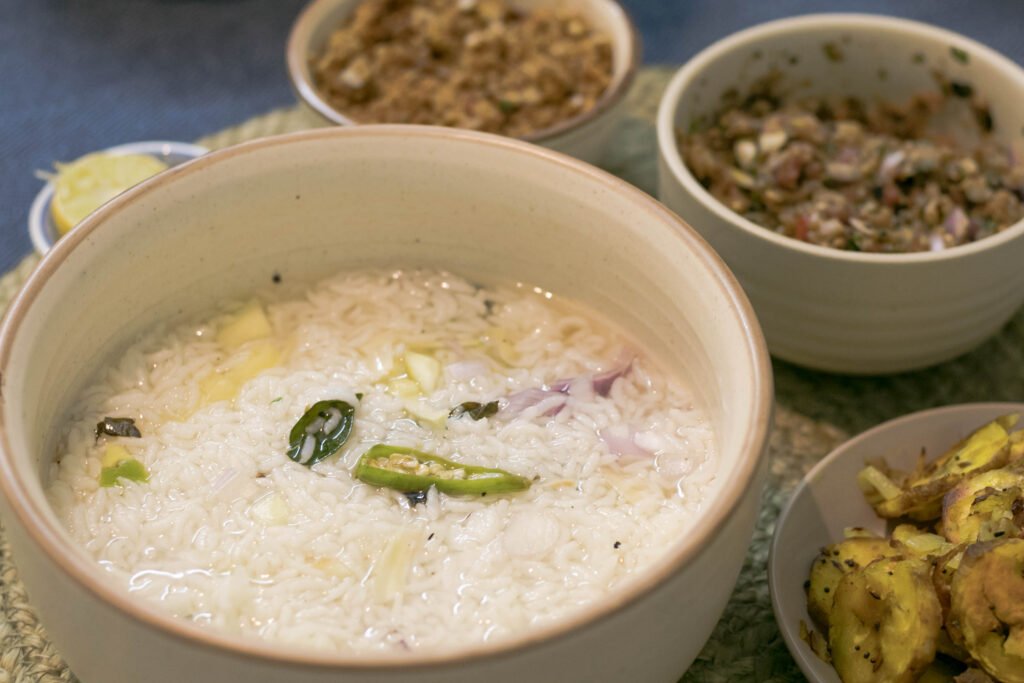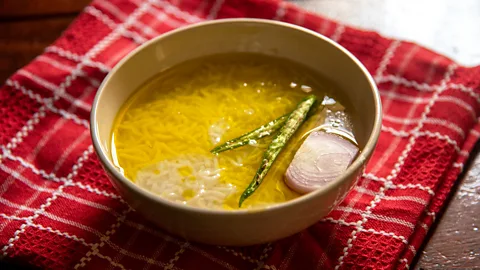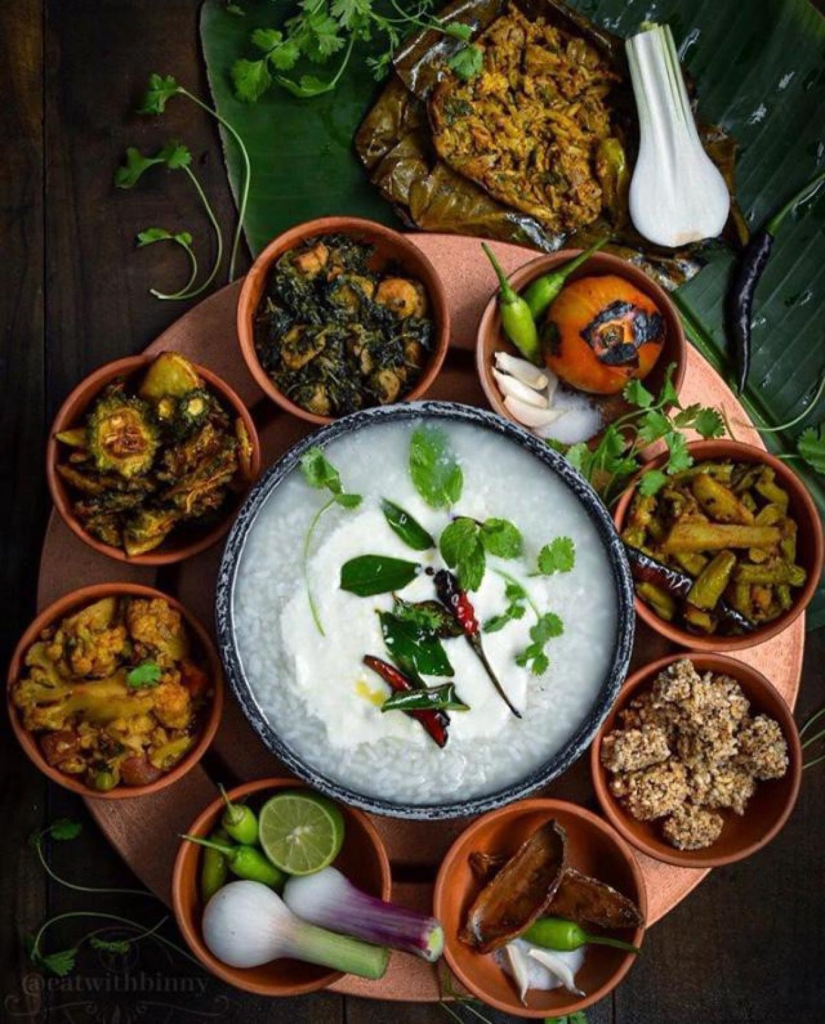Odisha Summer Dish Pakhala: A Traditional Coolant Gaining Global Popularity

On sweltering summer days in Bhubaneswar, the capital of Odisha, there’s one traditional remedy that stands out: Odisha summer dish pakhala. This fermented rice dish, affectionately known as “water rice,” has long been cherished by Odias as a simple, affordable, and highly effective way to beat the heat. Today, Odisha summer dish pakhala is gaining global recognition for its cooling properties and cultural significance.
Why Odisha’s Summer Dish Pakhala Is More Than Just Comfort Food
Pakhala is made by soaking cooked rice in water and allowing it to ferment overnight, often in an earthen pot. Traditionally served with yogurt and seasoned with mustard seeds, curry leaves, and dried red chilies, it is paired with various sides like mashed potatoes, sautéed greens, and fried fish. This dish is more than a meal—it is a ritual deeply rooted in Odisha’s cultural fabric.
Cooling Benefits of Odisha Summer Dish Pakhala
Central to pakhala’s appeal is its health-boosting element: torani, the fermented rice water. Rich in probiotics and lactic acid bacteria, torani supports gut health, enhances digestion, and offers protection against heatstroke. In rural areas, farmers consume large quantities of torani before heading to work, relying on it for hydration and sustained energy under the sun.
“Torani is packed with short-chain fatty acids that have anti-inflammatory and antiviral benefits,” says Dr. Balamurugan Ramadass of AIIMS Bhubaneswar. It also contains vitamin K, which promotes faster healing and supports overall wellness.
Cultural Legacy of Odisha Summer Dish Pakhala
Pakhala has been a staple of Odia cuisine for centuries. According to food historian Ritu Pattanaik, the earliest known references to the dish date back to the 12th century, when it was served as an offering at the famous Jagannath Temple in Puri. Today, it is common for Odias to eat pakhala to mark new beginnings, from weddings to housewarmings.

Chef Abinas Nayak, winner of MasterChef India Season 6, calls pakhala “a great equalizer” in society. “It doesn’t matter whether you are rich or poor. Everyone in Odisha loves pakhala.”
A Bowl of Pakhala for Less Than a Dollar
Made from leftover rice, water, and minimal seasoning, pakhala remains one of the most cost-effective meals in India. A single bowl typically costs less than a dollar to buy, and even less to prepare at home. Yet its value transcends price—it offers comfort, nostalgia, and essential nutrition.
The Global Rise of Pakhala and Torani
In recent years, pakhala has gained recognition across India and beyond. With the increased focus on indigenous superfoods, many are rediscovering the dish’s cooling and probiotic benefits. The trend peaks every March 20th on Pakhala Dibasa (Pakhala Day), when restaurants in Odisha offer elaborate pakhala platters and social media buzzes with posts from Odias worldwide.

International communities, from the U.S. to the Middle East, now host pakhala potlucks where Odia diaspora gather to enjoy this nostalgic meal. Chef Nayak has played a key role in its revival, both through social media and his appearances at national culinary events.
Diverse Pakhala Platters: More Than Just Rice
Modern interpretations of pakhala come with sides such as:
- Alu Bharta (spiced mashed potatoes)
- Baigana Bharta (roasted and mashed aubergine)
- Tomato Poda (smoked tomato chutney)
- Sukhua (dried salted fish)
- Saga Bhaja (stir-fried leafy greens)
- Badi Chura (crushed lentil dumplings with mustard oil and garlic)
“These aren’t just sides; they provide a carefully balanced meal,” says food blogger and culinary chronicler Alka Jena. “Each component offers a unique texture, flavor, and nutritional benefit.”
A Taste of Home for Every Odia
Whether served in the bustling city of Bhubaneswar or shared among friends in a Riyadh apartment, pakhala remains a cherished link to home for many Odias. For some, it’s the go-to comfort dish after a long day in the sun. For others, it is a nostalgic reminder of childhood summers.
As climate change drives up temperatures and awareness of native health foods grows, pakhala is no longer just a regional tradition—it is emerging as a global solution for summer heat and sustainable eating. In its simplicity lies its power: to cool, to nourish, and to connect people across generations and geographies.




